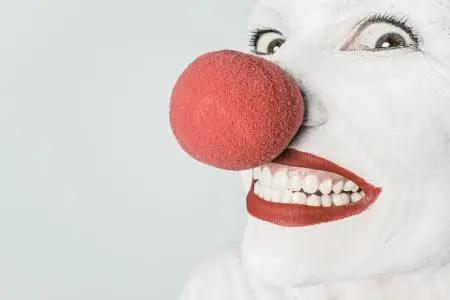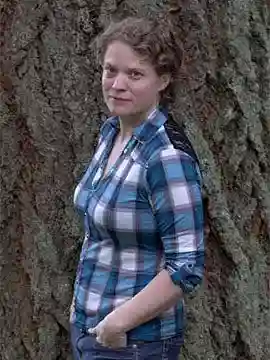First up this edition is Carolina Tsukino with the following passage:
For a reason that I’m yet to comprehend, instead of going on, I sit on the couch and rub my eyes with my hands and then just stare at the white wall in front of me. I’m not tired, but I don’t want to keep on searching either.
My arms are covered in dust, same with my clothes and hair. I cannot deny I’m a little worried about her, but I’d like to think she’s fine, she always is.
I cannot even remember the number of houses we’ve being searching in. I stopped counting at thirty. Right now, my guess is probably sixty. The truth is I’m not sure at all.
My mind starts playing tricks on me, telling me that all of this is useless. I quickly shove away the idea but then another one replaces it, but it’s just as terrible.
Carolina says: I'm in the process of translating my novel and I fear my English won't be good enough. I will have someone checking the text but it will be only about word placement and such. Your help would be much appreciated.
I didn’t really see any issues with translation other than some wordiness, but this sort of thing exists in the work of native English speakers all the time. The biggest issue was that of vagueness.
A lot of the phrasing leaves it unclear as to what’s happening. And some things are contradictory—for example, rubbing eyes is usually a sign of being tired, but immediately afterward your protagonists says they aren’t tired.
Who is the “she” being searched for? A friend? A pet? An elderly grandmother? There is no real indication given so the story is ungrounded. The reader doesn’t know what the stakes are.
Who is “we”? Who is doing the searching with the protagonist? Is it a friend? A whole group of people? And if so, where are they? In the same house as the protagonist right now? Or searching elsewhere?
What is meant by searching houses? Are the characters going through other people’s houses? Or abandoned houses? Searching houses seems like a very intrusive and unusual act, so a little more context there would help a lot.
For the revision I’m going to invent a scenario that is likely not at all what you intended, but it is meant to show how to add those specifics in. You can then just replace them with whatever your specifics are.

Revision:
I sit on the couch, just staring at the white wall in front of me. I’m not tired, but I don’t want to keep searching for Amy either.
My arms are covered in dust, same with my clothes and hair. I’m worried about her, but I’d like to think my sister is fine. She always is.
I can’t even remember how many abandoned houses her boyfriend Andy and I have searched. I stopped counting at thirty. Right now, my guess is probably sixty. The truth is I’m not sure at all.
Andy is still banging around, calling her name. Everything else is the pure silence of a dead world.
I start to think we won’t ever see her again. Maybe this is more than one of her tantrums. Maybe she really doesn’t want to be found. I quickly shove away the idea but then another one replaces it--that maybe we should have chased after her sooner because maybe something’s happened to her.
Next up we have Redd Tramp with the following novel opener:
“Happy birthday, Rose.”
The clown sets a slice of cake on the table, humming the song under his breath.
Rose sits on a tiny pink chair meant for a toddler, stares at the paper plate, hugging her knees to her chest. “It’s not my birthday.”
He smiles, licks frosting from his painted lips and twists a curl of his blue hair around a finger, slides the paper plate closer. “It’s been exactly three years, darling. Three years since we first met.”
She puts a hand to her forehead and squeezes her eyes shut. “Three—three years?” The black lights in the playroom ceiling make her tears shine purple as they cut through the dirt on her cheeks and collect into a neon drop on her chin.
“Aw, come on,” the clown says. “Don’t cry, doll. Look. Red Velvet, your favorite.” He chuckles.
The purple drop drips from her chin and disappears on the black floor as she kicks the tabletop with her bare foot and sends the paper plate flying. Her slice of Red Velvet birthday cake comes through my bars, splatters on the floor of my cell and my stomach clenches, begging me to eat some but not wanting to maybe throw up again.
The clown slams his fist on the table, points a white finger at her. “I’m getting real tired of your sass. You’re toeing the line as it is with that stunt you pulled last week. You know how flippin long it took me to fix my treasure chest?”
He grabs another slice of cake from the cardboard box on the floor, palms the plate in his big hand. “Now, I’ll ask once more. Are you going to eat your cake and have a nice time, or am I going to have to feed you?”
Redd says: I'm in the process of revising my psycho-clown horror story, and I'd love to get your thoughts on my first 300 words. I'd like to know if it's a decent enough hook, in media res and all that, and get your thoughts on the prose, the details, and the amount of description.
This is a solid start for the most part. I only have a few suggestions.
Starting with a line of dialogue is a pet peeve of mine. (Not that I haven’t done it myself before). But the issue is that we don’t know the story and we don’t know the speaker, especially when it’s set out on its own, floating. Maybe tagging it right away could help. It’s probably the clown speaking, but this isn’t entirely clear, especially since it sounds like he is simultaneously humming.
I also wonder why he’s licking frosting from his lips. Did he take a bite of cake himself already?
The story begins reading like a third person narrative, but then all of a sudden we realize there’s a first person narrator who is observing all of this from another cell. This threw me. Finding a way to make the narrator clear from the beginning can go a long way in avoiding confusion. While there is merit to ‘burying the “I”,’ there are ways to still make it clear we have a first person narrator. Making all of the observations from a distinct viewing location can help. As it is written now, it seems like we can float around and see anything in the room. We are able to see the clown’s face and Rose’s face, though they should be faced towards each other. So maybe our narrator has a side view. But then when Rose pushes the table—presumably away from her, the cake goes into the narrator’s cell, which would mean he/she must be in a cell that faces Rose head on.

Revision:
“Happy birthday, Rose,” says the clown as he sets a slice of cake on the table in her playroom cell.
He hums the birthday song under his breath as Rose, seated on a tiny pink chair meant for a toddler, stares at the paper plate, hugging her knees to her chest. The tune echoes ominously off the concrete prison walls and somehow seems amplified when it reaches my cell. But he stops when Rose says, “It’s not my birthday.”
He puts a gloved finger to his mouth, presumably licking the frosting off, though all I can see of him is the back of his curly blue hair. He slides the paper plate closer. “It’s been exactly three years, darling. Three years since we first met.”
She puts a hand to her forehead and squeezes her eyes shut. “Three—three years?” The black lights in the playroom ceiling make her tears shine purple as they cut through the dirt on her cheeks and collect into a neon drop on her chin.
“Aw, come on,” the clown says. “Don’t cry, doll. Look. Red Velvet, your favorite.” He chuckles.
The purple drop drips from her chin and disappears on the black floor as she kicks the tabletop with her bare foot and sends the paper plate flying. Her slice of Red Velvet birthday cake comes through my bars, splatters on the floor of my cell and my stomach clenches, begging me to eat some but not wanting to maybe throw up again.
The clown slams his fist on the table, points a white finger at her. “I’m getting real tired of your sass. You’re toeing the line as it is with that stunt you pulled last week. You know how flippin’ long it took me to fix my treasure chest?”
He grabs another slice of cake from the cardboard box on the floor, palms the plate in his big hand. “Now, I’ll ask once more. Are you going to eat your cake and have a nice time, or am I going to have to feed you?”
That concludes this edition! Feel free to discuss these edits and make other suggestions in the comments.
Also: I need more paragraphs to edit! Inundate me with yours either by posting in the comments or by messaging me. You can remain anonymous if you’d like. Just send me 300 words or less and a sentence or two explaining your goals or concerns, and I’ll see what I can do!

About the author
Gayle Towell’s stories have won the 2013 Women’s National Book Association writing contest, the 2014 Willamette Writers Kay Snow fiction award, and have been published in Menacing Hedge, Pif Magazine, and the Burnt Tongues anthology among other places. Her novella Blood Gravity was released through Blue Skirt Productions in September 2014. Gayle is the founding editor of Microfiction Monday Magazine and cofounder of Blue Skirt Productions, an artists’ collective. For more information, visit gayletowell.com.








